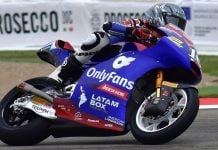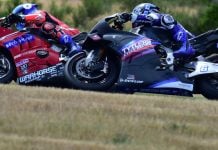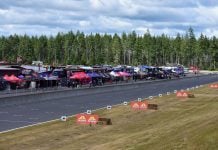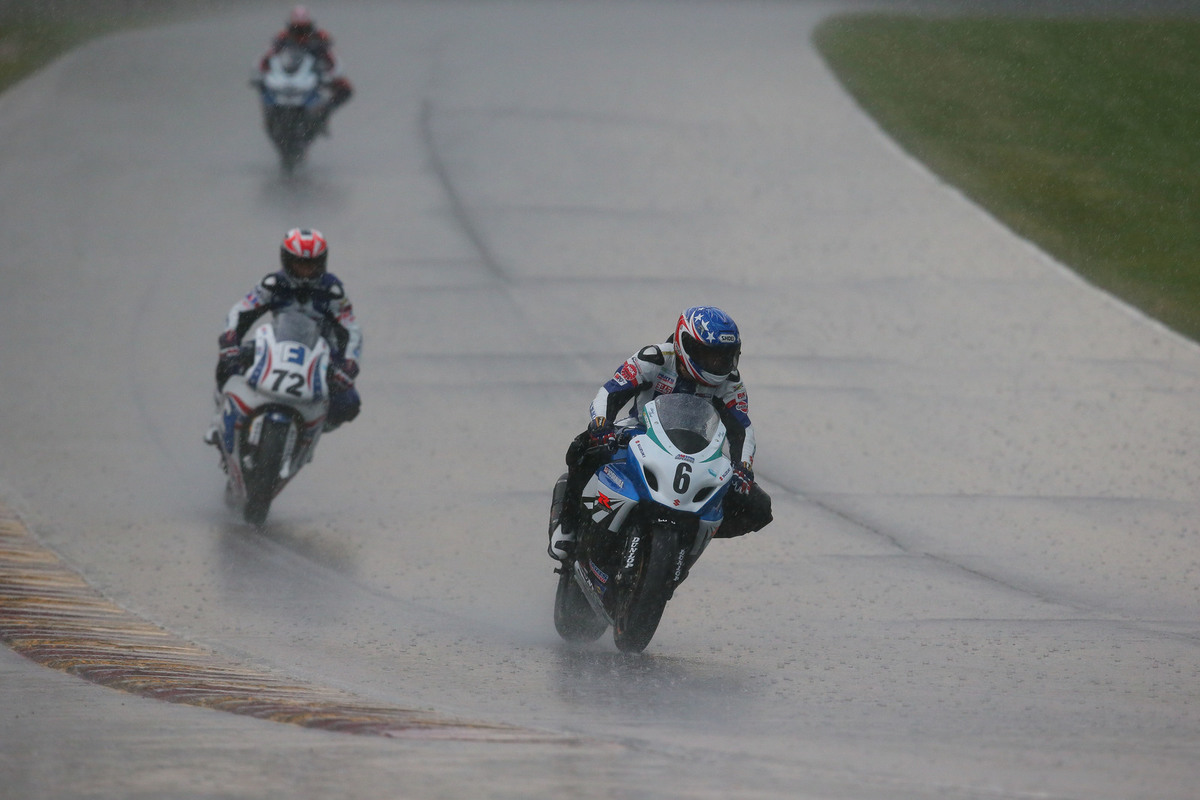Roadracingworld.com conducted a “best practices” poll of motorcycle race directors and senior officials, presenting each with the same hypothetical race and weather scenario, and asked what they would do if they were in charge.
Roadracing World’s Scenario: The field is racing on dry-weather tires and it starts raining hard, visibility is reduced and there is cloud-to-ground lightning in the vicinity of the track. You’re running the race. What would you do? And if your answer is “stop the race,” are there any circumstances in which you would not stop the race?
Here are more of the answers we received:
John Orchard, President, Board of Directors, Central Motorcycle Roadracing Association (CMRA):
“The CMRA holds its races rain or shine unless the track is impassable or unsafe as determined by the Race Director. Lightning within the vicinity always brings the race to a stop to allow racers, officials and corner workers to take cover. Other conditions that change dramatically during the course of a race severely limiting visibility or making the course impassable are also considerations for race stoppage or delays to a start. Safety to everyone involved in the event is always the top priority.”
Tim O’Mahoney, President, Washington Motorcycle Road Racing Association (WMRRA):
“This happened to us this past weekend. Here is a summary…
“[The] 750SS [race] was just leaving the pits on the sighting lap when the skies opened and it began to rain pretty hard. Race Control red-flagged the sighting lap, sent everybody back to the pits, and moved that event to the end of the day. The following race was given a 15 minute window to switch to rains.
“In the past we have had rain deep enough that the rain tires could not displace the water, and have similarly red-flagged a race and restarted it later. In that case, it was re-gridded as per our rulebook, which states that the riders grid in the position they were on the most recent completed lap.
“I am certain we would do the same for lightning, but I don’t recall that happening in recent history.
“As far as a situation where we would not red flag, my guess is that like most clubs, we are very safety-centric. If there is ever a question as to rider safety, we always default to protecting the rider. Sometimes that means we may be a little premature in our decisions, but my goal is everyone drives home with a smile on their face on Sunday night, so we are good with erring on the side of safety.”
Shane White, Race Director, Utah Sport Bike Association (UtahSBA):
“Thank you for the opportunity to chime in. Based on the details you gave. I would red flag the race. To start the race as a dry race and then have a downpour would be very dangerous. Add lightning and it’s even more so. If the race had been deemed a wet race before the start and with no lightning, that would be a different story. But still depends on how heavy the rain was. I will never unnecessarily endanger racers, even at the expense of having angry racers.”
Carlos Requejo, Race Director, FIM CEV Repsol International Championship:
“Yes, in the circumstances you describe (dry weather tires, heavy rain, lack of visibility and lightening), I would stop the race. As to the second part of your question, there is no alternative here (Europe), but to stop the race. However, there are many reasons that could stop a race (Road Racing velocity):
“- In the case of FIM CEV REPSOL, race conditions are always considered “wet”, This means that they do not stop for rain, but could be stopped for security reasons (heavy rain, lack of visibility, etc.) by decision of the Race Director. In this case the riders must enter in boxes and change tires.
“-An accident on the track or very close by and the pilot must attended on site.
“-Oil spill or other slippery liquid on the track.
“-Obstacles on the track.”
Note: These same poll questions were also sent to the Race Directors for the FIM MotoGP World Championship, the eni FIM Superbike World Championship, the Australian Superbike Championship, the Swann Insurance Australasian Superbike Championship, AFM and OMRRA.






